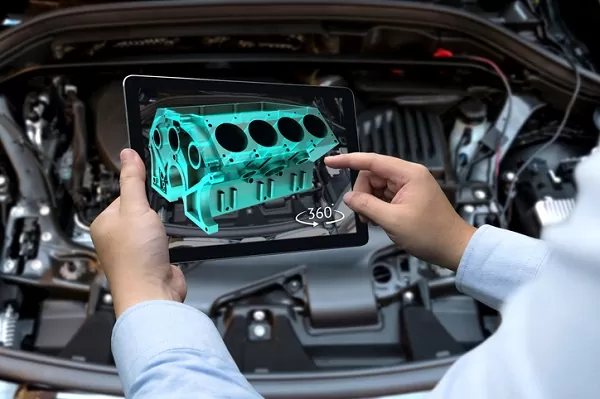A car accident claim can leave you unsure of what to do next. In the aftermath of a car accident, you may be wondering if you’ll have to go to court or if you’ll need a lawyer. This normally hinges on the severity of your injuries and negotiations with insurers.
You are never required to have a lawyer. However, some victims employ legal representation so they can focus on their recovery. 1-800-Injured in Miami can connect you with an attorney in our network to take on your case.
The majority of car accident insurance claims are resolved in negotiations. However, when both parties cannot agree on who is liable for the crash or both parties cannot agree on the amount of compensation the victim should receive, then the case may proceed to court. Car accidents occur daily, so knowing what to do if you’re involved in one can be useful.
Common Car Accidents
The Association for Safe International Road Travel reports that 4.4 million car accidents happen each year. Even though car accidents are a seemingly common occurrence, going to court for a car accident is not.
Personal injury cases are settled out of court 95% of the time. In many cases, your case will settle in negotiations. However, you could end up in court when:
- The other driver disputes the fault
- The insurer refuses to offer you a fair settlement
- The insurer denies your claim outright
If your case needs to go to trial, then it’ll be up to you to prove why the other party is responsible for your injuries. Legal professionals use the elements of negligence to prove who’s liable for car accident claims.
Negligence in a Car Accident Claim
When you file a personal injury case, you must prove negligence to win in court. The four key elements of a negligence claim include the following.
Duty of Care
The other driver owed you a duty to operate their motor vehicle with a certain level of due care regarding you, other motorists, and passengers on the road.
Breach of Duty
The other party breached their duty by doing or not doing something that put you in harm’s way. This may include breaking traffic laws like speeding or using unsafe driving practices.
Causation
The other party’s breach of duty caused the accident. This means that the other party is legally responsible for your damages and injuries.
Damages
Economic damages typically refer to the losses you incur as a result of your accident. These can be for your injuries, lost wages as a result of missing time from work or no longer being able to perform your duties, and property damage.
An attorney can help you determine a monetary value for your economic and non-economic damages. If you are considering filing a lawsuit against an at-fault driver who caused your accident, do not delay. Every state has its own statute of limitations or time frame for filing a personal injury lawsuit. The clock usually starts from the day your accident occurred.
What to Expect In Court
If you are unable to successfully resolve your case in negotiations, you may be forced to file a lawsuit to recover what you’re owed. Experienced car accident attorneys can help with each stage of the process, including:
Filing a Complaint
The litigation process begins with the filing of a complaint. This includes information about you, the other party, the accident, and your legal right to compensation. Your lawyer can prepare your complaint and file it within the applicable statute of limitations in your state.
Obtaining Evidence
Discovery is a formal process of learning about the other party’s proof and defenses. Your personal injury lawyer can gather information to help you establish the elements of your case by:
- Requesting the defendant admit to certain allegations
- Requesting the defendant answer written questions under oath
- Requesting certain documentation from the defendant
- Sending out subpoena requests to all those involved, including witnesses, your employer, or your healthcare providers
- Examining the defendant or witnesses during a deposition
- Interviewing and examining potential expert witnesses
Going to Trial
If your case ends up in trial, you will have to appear in court. Your lawyer can help you prepare and interview potential jurors to make sure that they don’t hold biases against you. Your lawyer can also present evidence that establishes your claim and examines your witnesses. They can also cross-examine the defendant and their witnesses.
Typically, after the trial, a judge or jury will render a decision in your case. If either party was not satisfied with the result of that decision, your case can be appealed if there were errors made during the trial or litigation process that affected the outcome.
Deadline to File a Lawsuit
If you decide to file a lawsuit against the at-fault party in your accident, you will be subject to the statute of limitations outlined in your state. In the state of Florida, for example, the statute of limitations for a car accident claim is up to four years after the accident occurred. Each state will vary.
Car Accident Arbitration
Arbitration is less formal than taking your case to trial. However, the circumstances are similar. For example, your attorney will prepare an opening statement, call witnesses, present evidence, and produce experts when applicable. The proceedings typically take a few hours.
Before the arbitration, you and your attorney will discuss your testimony so that you are prepared. Offering as much information and evidence to your attorney as possible will help them build your case. Arbitrations can be useful in keeping claims out of court. They are also less expensive than a trial.
Don’t let the person liable for your losses not be held responsible. Speak with an experienced lawyer today for a free case review and see what kind of financial compensation you may be entitled to.
Go home







